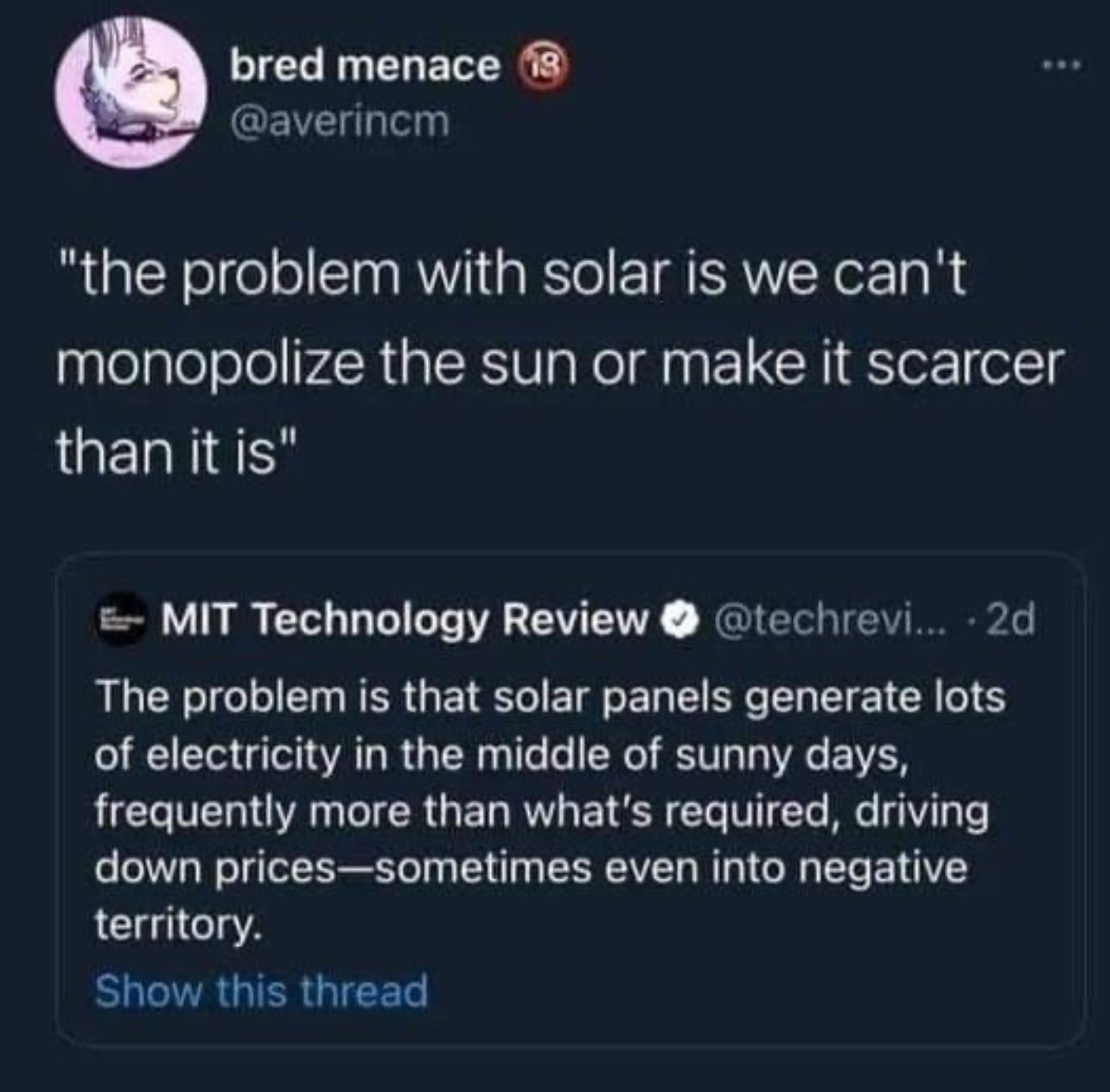this post was submitted on 02 Oct 2024
1686 points (95.6% liked)
Microblog Memes
6193 readers
2775 users here now
A place to share screenshots of Microblog posts, whether from Mastodon, tumblr, ~~Twitter~~ X, KBin, Threads or elsewhere.
Created as an evolution of White People Twitter and other tweet-capture subreddits.
Rules:
- Please put at least one word relevant to the post in the post title.
- Be nice.
- No advertising, brand promotion or guerilla marketing.
- Posters are encouraged to link to the toot or tweet etc in the description of posts.
Related communities:
founded 2 years ago
MODERATORS
you are viewing a single comment's thread
view the rest of the comments
view the rest of the comments

Why isn't this as easy as storing some of that excess energy in a home battery and letting the rest down in a wire into the ground? Then if it's smart enough it could only give back energy when needed.
The easiest solution is to send the power somewhere else where it can offset the use of fossil fuels. This solution is fraught with political hurdles, subject to market forces (due to privatization) and often grid compatability issues(looking at you Texas). It is, however, a time tested and common method for mitigating excess production.
While water in pipes is often a metaphor for electricity, it's not particularly useful here. You can't ground out part of a charge. Energy storage is the solution though. Batteries are good, pumping water up back up into dams to be regained from a hydro plant when needed is ideal, as I understand it.
Well, that's what they're doing some places. The batteries assets are not in private homes usually though, they're by themself or run by power-consuming industries. Batteries are expensive though, and they degrade quickly if you use them wrong. In the EU, ENTSO-E defines the market rules, trade systems and messaging systems that energy companies and asset owners play by. Sometimes the revenue-generating asset is a battery, sometimes it's a hot water boiler, wind park, factory, hydro plant etc.